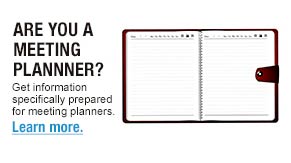Defining Play and Work: A Date vs. a Meeting
Having more “Dates” immediately increases your achievement and enjoyment in life. Here’s the important distinction between a Date and a Meeting that will add more positive balance to your life today. (Average reading time 120 seconds).
Perhaps you have read one of the many studies out today that directly link high stress with a variety of critical ailments including high blood pressure, heart attack, impaired immune system, emotional instability, spine and muscle pain, and reduced brain functioning.
Taking some time to Play every day reduces the production of excess stress hormones that produce these negative physical and mental consequences. In addition to reducing negative stress, Play is vital to creating greater value and balance in your life.
But most of us are so caught up in the important and varied Actions of our everyday lives, that we’re a bit foggy on what Play even is.
So let’s clarify the difference between Action and Play by defining the difference between a Meeting and a Date.
A “Meeting” is Action time, with major decision topics for one or all of the participants.
However, a “Date” is Playtime, with NO major decision topics for any of the participants.
A meeting is action. It’s about doing, discussing or evaluating important decisions in your business or personal life.
A Date is Play. It’s about rest and relaxation, smiles, laughs, some unwind time…and no major decision topics.
Let me illustrate the importance of distinguishing the two with a personal example.
My wife and I work together. I met her in a previous business where she was in charge of our finance and administrative functions. We fell in love, got married, she “retired” and we had two children. A few years ago I asked her to join our present firm to help with some expansion plans. As a result she and I work together daily, have two teenage daughters, have house payments, car payments. So obviously, we have a lot of meetings.
Now lets say we decide to just get away from it all and go out for a dinner “date” – a little R&R. Imagine candlelight, a little wine – we’re having a good time. We might be talking about important topics like world politics. Neither one of us is a world politician so no major decision topics there. Or maybe we’re discussing a major trial in the news. Neither one of us are lawyers, so once again , we do not have to make any major decisions. Or maybe we are romancing a bit about what’s going to happen at the end of the evening because the girls aren’t home tonight…not a major decision. And we are laughing, smiling, flirting.
And then I say, “Oh, by the way, did the ABC Company contract come in for next month.”
And she says, “Oh no it didn’t. And if it’s still on we have to book meeting space. I need to have Sue call on Monday. Where can I write this down?”
What have I done to that date?
Right. I’ve turned it into a meeting.
And what have I done to the chemistry of the moment, maybe of the whole evening?
I’ve potentially ruined it…simply by replacing Play with Action.
Now the longer you are involved in a romantic relationship the more joint responsibilities you are going to have. So it’s appropriate to have more meetings. But if you replace all of your dates with just having meetings, then all of the umph and all of the spark can go out of the relationship and out of your life.
So if you are in a long-term romantic relationship now, and if not for future reference, regularly ask yourself this question:
Are you still dating? Or are you just having……meetings?
If you haven’t had a really good date lately, especially a romantic date, explain the difference between a date and a meeting to your significant other. Then go out and stick to the “no major decision topic” definition. You may find when you go out, you have nothing to talk about. It’s almost like being on a first date. But you’ll find it fun and exciting exploring new topics.
Now a date versus a meeting applies to more than just your romantic relationships. It applies to your relationships with your co-workers, your friends, children, parents and even with yourself.
A mistake I made too often in the past with the managers I worked with drove this home to me. I’ve always operated in a fast-paced, get-it-done environment. Occasionally some of the team would ask me if I wanted to go to lunch with them. I knew that they just wanted to take a 45-minute break from work, get recharged and come back in ready to make things happen. But I would always go with an agenda.
I would listen to them talk about their kids, the ball game or the trip they were planning. Then at what I thought was the appropriate time, I would say, “Oh by the way, Pat, how did third shift do last night?” or “Dave, how did West Coast sales look through midweek?”
Instantaneously you could see the whole complexion of that lunch change. They didn’t have a very good date, or R&R time. I didn’t have a very good meeting. And you know what else happened? They quit asking me to lunch.
I was a bit slow but I finally figured it out. Now before going out we clarify whether it’s Date or Meeting time. Often, what we end up saying is, “Let’s get all business topics out of the way before the food comes. Then when the food comes lets make it just Play.” That way nobody has to sit on the edge of their mental seat waiting for the ball to be passed to them while we’re eating.
So Play time means no major decision topics whether they are about work, the leak in the roof, the kids’ report cards or even your health, unless it’s good. Clarify up front whether you are going to have a Date or Meeting. And when you are Playing be sure and celebrate the things that make up that moment…your surroundings, your meal, each other, yourself.
Remember your body, your mind and your spirit NEED this Play time for a healthy, happy whole life.
Make enjoying some non-decision topic play time a happy requirement for yourself… EVERY DAY.
Jim Bird, Publisher
You should have regular Play time in each of your four life quadrants.
© WorkLifeBalance.com 2003 – All Rights Reserved
Available onsite or online |
Available onsite or online |
Available onsite or online |
Available onsite or online |
Your facilitators deliver |
For your event or meeting |
eTips
Good Habits are Hard to Break
Just like bad habits, good habits are also hard to break. To make something a habit, you simply have to focus on doing it for 30 days. After 30 days of focusing on your “good habit”, it will be hard for you to NOT do it!
So RIGHT NOW, pick the one activity that you think will improve your life most dramatically. For example, exercising, eating healthier, setting aside more Play time, starting back on that hobby you love, reading to improve your professional skills.
Now, write a reminder to do it in your planner every other day for the next 30 days. Even though you may want to do it every day, we recommend you write the activity down in your planner for every other day. This prevents it from looking like print on the page that your mind just overlooks. Seeing it should be an “ah-hah” re-enforcer. Think this is a good idea? Do you want to improve your life with a good habit? Then write the reminders in your planner RIGHT NOW – and make it happen.
Work-Life Balance at Your Next Meeting?
The interest and demand for Work-Life Balance from your managers, sales people and employees has never been higher. Why not have the leader in the field deliver a high-impact program at your next meeting?
Quotes from Aristotle
“Men acquire a particular quality by constantly acting a particular way…you become just by performing just actions, temperate by performing temperate actions, brave by performing brave actions.”
“We are what we repeatedly do. Excellence, then, is not an act, but a habit.”
“What it lies in our power to do, it lies in our power not to do.”
“It is easy to perform a good action, but not easy to acquire a settled habit of performing such actions.”
Aristotle was a Greek critic, logician, philosopher, physicist, father of logic, father of dramatic criticism who lived from approximately 384 B.C. to 32 B.C.
Work-Life Balance Training For Your Organization
The 5 Steps to Better Work-Life Balance training program creates more value and balance for you and your team on and off the job every day. Proven productivity impact through the use of a common organizational language for work and life. Learn more about this internationally recognized program.
WORK-LIFE BALANCE TRAINING FOR YOUR ORGANIZATION
Work-Life Balance Training For You
The best work-life balance tools are now available in state-of-the-art video-based format for desktop learning from WorkLifeBalance University. Consistently outstanding client reviews. “Puts you in the classroom.” “Results better than live.” “Awesome presentation!”
Want to learn how to improve the performance of your organization and the quality of your employees' lives?
-
Higher Productivity
-
Create better leaders
-
Improved Teamwork
-
Less Stress
-
Manage time efficiently
Whether you're a senior level executive, HR or Training manager or you just want to gain more value out of your professional and personal life our unique dual purpose work and life programs can help you and your organization.
FREE DOWNLOADS
Free Articles

